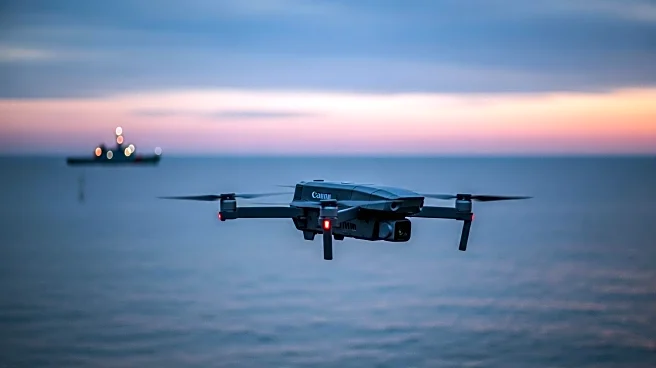What's Happening?
Sweden has announced plans to propose legislation aimed at increasing the security of the Baltic Sea by expanding the surveillance capabilities of its coast guard. This move comes in response to heightened tensions in the region following a series of undersea cable and gas pipeline outages, as well as recent drone sightings and airspace violations. The Swedish Minister for Civil Defence, Carl-Oskar Bohlin, emphasized the need to address the current security challenges. As a member of NATO, Sweden is also aligned with the alliance's efforts to bolster its mission in the Baltic Sea, which includes deploying an air-defense frigate and other assets.
Why It's Important?
The proposed legislation by Sweden reflects the growing security concerns in the Baltic region, which have been exacerbated by Russia's aggressive actions since its 2022 invasion of Ukraine. Enhancing maritime surveillance is crucial for Sweden and its NATO allies to deter potential threats and ensure the safety of critical infrastructure. The move is part of a broader strategy to strengthen regional defense capabilities and maintain stability in the face of hybrid warfare tactics employed by Russia. This development is significant for regional security dynamics and the ongoing efforts to counter Russian influence in Northern Europe.
What's Next?
If the legislation is passed, Sweden's coast guard will have increased authority and resources to conduct maritime surveillance, which could lead to more effective monitoring and response to potential threats. NATO's continued reinforcement of its presence in the Baltic Sea is expected to deter further provocations and reassure member states of the alliance's commitment to collective defense. The international community will be observing how these measures impact the security situation in the region and whether they lead to a de-escalation of tensions with Russia.









